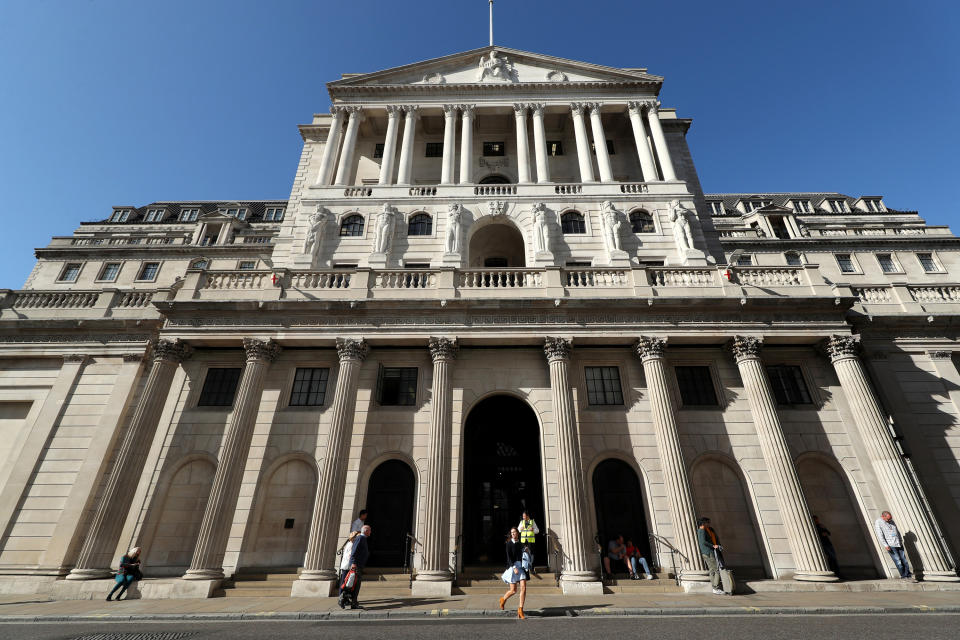
UK mortgage lending decreased to £5.3bn ($6.5bn) in June, down from £8bn the month before, as consumer borrowing rose during the month, new data has shown.
According to the Bank of England’s (BoE) money and credit report on Friday, net borrowing of mortgage debt remained above its 12-month pre-pandemic average up to February 2020 of £4.3bn.
Gross lending decreased to £25.4bn in June from £28.1bn in May, and gross repayments decreased slightly to £20.3bn from £21.2bn.
Approvals for house purchases, an indicator of future borrowing, decreased to 63,700 last month, from 65,700 in May, which is below the 12-month pre-pandemic average up to February 2020 of 66,700.
Approvals for remortgaging, which only capture remortgaging with a different lender, decreased to 44,000 in June, from 47,200 in May. This also remains below the 12-month pre-pandemic average up to February 2020 of 49,500.
Read more: FTSE and European stocks climb as France and Spain beat growth forecasts
“The monthly decline in the total amount of borrowed could be the clearest sign yet that nervousness over inflation and the crippling cost of living crisis is finally seeping into the UK’s red-hot property market,” Alice Haine, personal finance analyst at Bestinvest, said.
“While the drop in mortgage approvals to 63,700 in June from 65.700 in May could indicate that buyers and lenders are approaching the market with more trepidation, this data set has been very volatile in recent months.
“The defiant data for May — when mortgage lending rose by the most in eight months despite the headwinds caused by soaring inflation — is certainly testament to that.
Watch: How to prevent getting into debt
It came as consumers borrowed an additional £1.8bn in consumer credit, on net, during the month.
The additional consumer credit borrowing in June was split between £1bn on credit cards, and £0.8bn through other forms of consumer credit, such as car dealership finance and personal loans.
The annual growth rate for all consumer credit increased to 6.5% in June; the highest rate since May 2019 (6.5%). The annual growth rate of credit card borrowing was 12.5%, while other forms of consumer credit was 4.1%.
These were the highest rates since November 2005 (12.6%) and March 2020 (5.6%) respectively.
Small and medium sized businesses repaid £0.4bn of bank loans in June, more than the £0.2bn repaid in May, and the 15th consecutive month of net repayments. Large non-financial businesses borrowed £1.3bn of bank loans in June compared to £1.6bn repayments in May.
Tomer Aboody, director of property lender MT Finance, said: “Going forward, one would expect higher inflation and living costs to mean many will have to dip into savings in order to manage, with those who don’t have that buffer finding life increasingly difficult.”
Read more: UK consumer spending softens while job ads fall
Meanwhile, Haine added: “The jump in consumer credit borrowing highlights just how challenging the cost of living crisis is becoming for people across the country as soaring inflation, rising interest rates and falling real wages hit disposable incomes hard.
“While the national insurance threshold change this month boosted millions of monthly incomes by £30, with the first cost of living payment of £326 also hitting the accounts of the most vulnerable households, this can only go so far to prevent some people from falling into debt.
“With Liz Truss and Rishi Sunak battling it out to become the next prime minister, it means any further respite from new fiscal policies is still some way off, leaving households to sweat it out as the cost-of-living crisis heats up further.”
